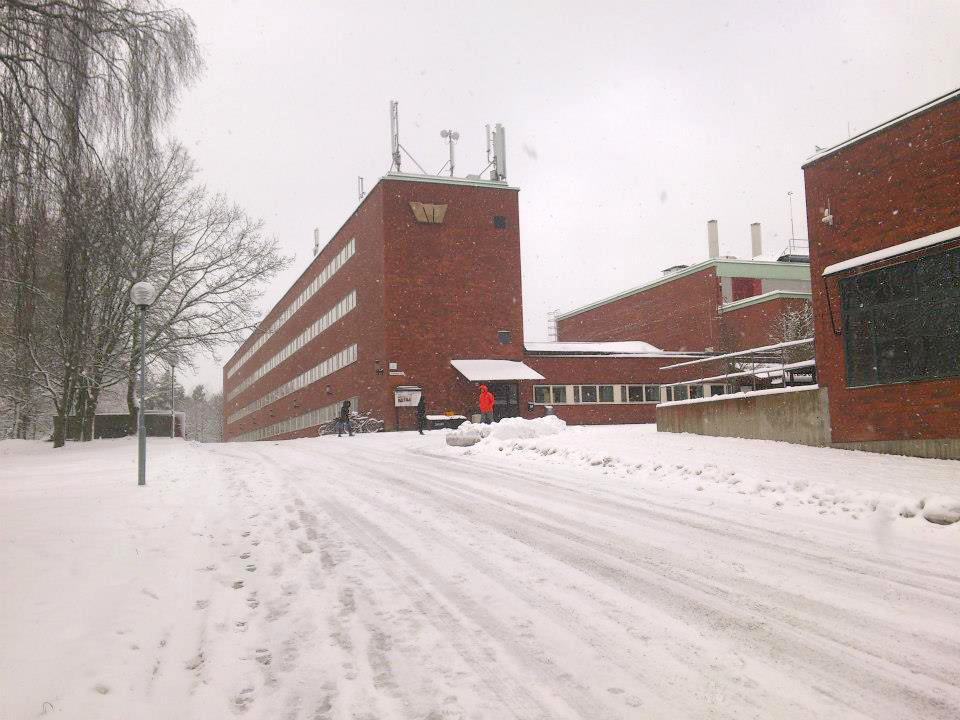Gowtham is pursuing a career in academia
Gowtham Mohan graduated from the master’s programme in Sustainable Energy Engineering in 2014. He is now a Postdoctoral Researcher at the University of Twente.

Hi Gowtham, what are you doing at the moment?
I am currently working as a Postdoctoral Researcher at the University of Twente in the Netherlands and I will be starting as an Assistant Professor at the University of New Mexico, Albuquerque, United States in August. My research focusses on solar thermal technologies using knowledge and skills acquired during my master’s degree in sustainable energy engineering with solar energy specialization at KTH.
What can a regular day look like at your job?
It is a mix of teaching, research and supervision responsibilities. A typical 8- to 10-hour role, with a varied workload with flexibility in my research topic and interests.
Have you worked with anything else since you graduated?
During my master’s degree, I had an exciting opportunity to do my master’s thesis while at the same time working as an R&D Engineer at the Swiss Center for Electronics and Microtechnology (CSEM) based in the United Arab Emirates. This opportunity was presented through an MOU signed between KTH and CSEM-UAE. It allowed me to work with a large solar field and provided me with much needed exposure.
After graduating with my master’s degree, I completed my doctoral degree at the Australian National University, Canberra with an International PhD scholarship. My research was in the area of high temperature solar thermal energy. This, too, gave me an opportunity to visit another new continent.

Why did you choose this programme at KTH?
I had a passion for renewable energy research from my undergraduate days, and I was interested in honing my skills with a master’s degree in sustainable energy engineering. The courses and elective tracks were well designed, and it was in my area of interest. I wanted to choose a specialised master’s degree rather than a conventional master’s degree in mechanical engineering.
Are there any insights or knowledge you acquired during your studies that have been particularly useful for you in your career?
Yes, definitely. During my undergraduate studies, I did very few courses in my area of interest and only had a shallow understanding. Whereas, during my master’s degree, all of the 120 ECTS credits were in my area of interest and offered a much deeper understanding, which indeed provided an ideal launchpad for my research career.

What were the best aspects of your studies at KTH?
The research or project element associated with the courses was one of the best things. Almost every course had a 3 ECTS credit worth of group projects, which allowed me to learn the subject better by solving complex tasks. Another really good thing is the diversity; we had students from at least 20 countries during the first semester. In one of my big group projects, I had project members from five different nationalities. It was a unique experience.
What is your best memory from your time at university?
I come from a tropical hot-humid climate, so I really enjoyed my first snowfall at KTH and my regular walk through the snow.

What are your plans for the future?
As mentioned before, I’m starting as an Assistant Professor from August with a primary research focus on solar energy, and I want to develop my own line of research and progress towards a professorship. My plan is to continue my research and develop a useful green energy product to protect the environment.
What would you say to a student thinking of applying for this programme?
The Sustainable Energy Engineering Programme has a great mix of coursework and research content which allows us to select our career pathways towards an industry role, a research position (PhD), and/or start-up. This programme offers flexibility and provides many different options for the students. If you’re keen on working in the area of clean and sustainable energy (need of the hour), then this is the right programme for you!
